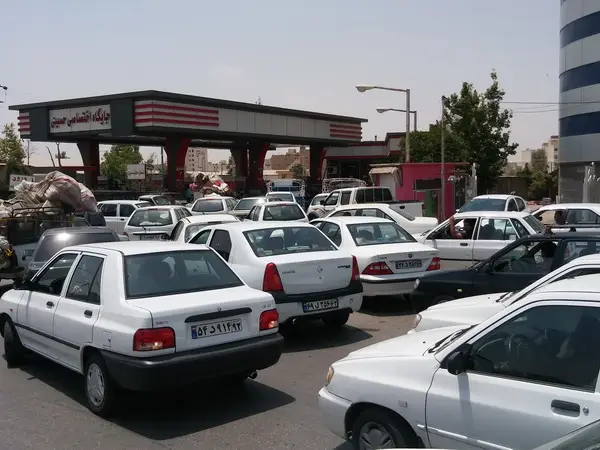Iran's state media have said that a cyberattack caused massive disruption at gas stations across the country on Tuesday, as special smart cards stopped working.
With speculation rampant on social media, Nour News, a website close to the Supreme National Security Council, denied any ploy by the government to soften up public opinion for a gasoline price increase. But almost immediately social media was full of rumors that the government was testing to see public reaction to a possible price increase. Drivers rushed to gas stations to fill their tanks, even if they did not any fuel.
Videos posted on social media Tuesday showed long queues in front of petrol stations. Distribution of cheaper, rationed petrol, which depends on the use of smart cards, had been stopped, with motorists obliged to buy unrationed gasoline at twice the price. By afternoon, authorities said they were working to resume rationed sales at designated stations.
Simultaneously, some electronic road signs were hacked to show messages like "Khamenei, Where is our gasoline?", a question addressed to Supreme Leader Ali Khamenei in Esfahan.
Another sign announced "free gasoline at Jamaran service station," referring to where the leader of the 1979 Islamic Revolution Ruhollah Khomeini lived before his death in 1989. During the 1979 revolution Khomeini was promising Iranians free electricity, water and a cash share of the oil export income.
The developments echoed July’s disruption to Iran’s railways, when information boards in train stations announced “Long delays due to cyberattack” and advertised the telephone number of Khamenei’s office. Similar attacks hit Mashhad and Tabriz airports in 2018.
But the disruption also comes as Iran enters the month of Aban, the anniversary of the mass protests of November 2019, when hundreds were killed, thousands arrested and the Internet largely shut down for a week.
No group claimed responsibility for the disruption to gas stations. Mehdi Mahdavi-Azad, a political commentator, told Iran International it was too early to say if this was an Israeli attack, but noted that both last November’s killing of nuclear scientist Mohsen Fahkrizadeh and April’s attack on the Natanz nuclear site, both widely attributed to Israel, had “serious repercussions” for Iran’s security services.
“Now even Mohsen Rezaei (former Revolutionary Guard commander) says there is a massive ‘bug’ and enemy infiltration in Iran’s security forces,” Mahdavi-Azad said.
Fars news agency, affiliated to the IRGC, attributed Tuesday’s gas-station disruption to "anti-revolutionaries" and opposition media.
The Iranian Students News Agency (ISNA), the first Iranian media outlet to report the attack Tuesday morning, published a picture showing the telephone number of Khamenei's office on a service station monitor. But the agency removed the report from all its portals and social media after a few minutes, claimed that it had itself been hacked.
